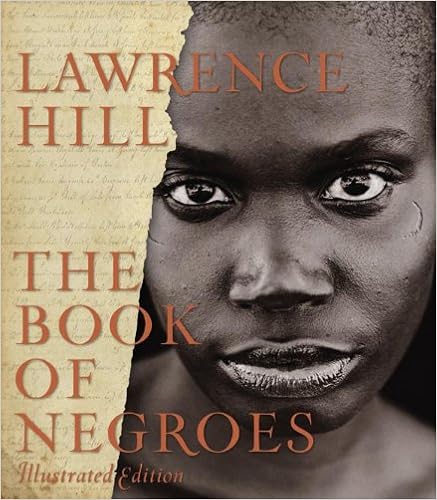These wins inspired me to post my notes on the book by Lawrence Hill which I read back in
September of 2008.
4
Stars
 The Book of Negroes is narrated by Aminata Diallo as an old woman. She tells her story beginning with her life
in Mali (1745), her abduction by African slavers, her voyage aboard a slave
ship, and her work on an island off the coast of South Carolina. She escapes to New York and then to Nova
Scotia. Eventually she makes her way to
Sierra Leone and finally to London where she works with abolitionists of the
slave trade. This inclusive narrative
around one memorable character is reminiscent of The Autobiography of Miss Jane Pittman.
The Book of Negroes is narrated by Aminata Diallo as an old woman. She tells her story beginning with her life
in Mali (1745), her abduction by African slavers, her voyage aboard a slave
ship, and her work on an island off the coast of South Carolina. She escapes to New York and then to Nova
Scotia. Eventually she makes her way to
Sierra Leone and finally to London where she works with abolitionists of the
slave trade. This inclusive narrative
around one memorable character is reminiscent of The Autobiography of Miss Jane Pittman.
I
especially enjoyed the insight into Meena’s African childhood and the migration
of the Black Loyalists to Shelburne and Birchtown (Nova Scotia) which I have
visited.
I admired
Aminata’s struggle to control her own life.
She learns quickly the power of language and literacy and uses it to
begin her political resistance against slavery.
Unfortunately, she was not totally realistic. She is almost too good to be true. She seems to lead a charmed life despite the
horrors she endures. She is intelligent
and beautiful, with a facility for languages, traits that always distinguish
her and ensure her survival. And her
unlikely discovery in a London crowd threatens the integrity of the narrative.
At times it
seems that the author tried to put too much into the book. I appreciated his historical research but
felt that the focus was sometimes on history, not the narrative. Though not totally engrossing, it is
definitely a worthwhile read. I would
expect it to be picked for Oprah’s book club.
No comments:
Post a Comment